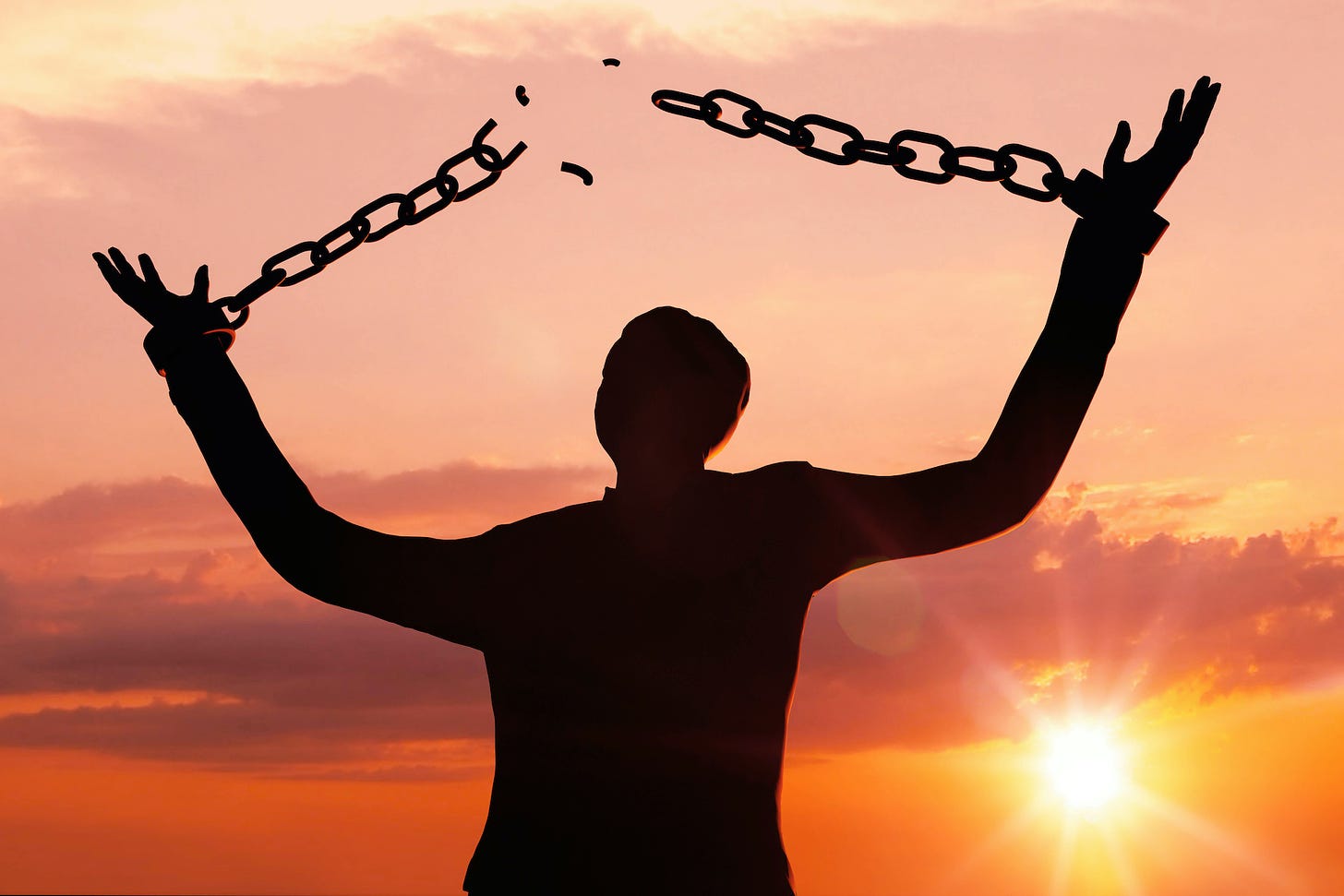Originally posted on March 15, 2018, but this version has some new musings. For context’s sake, be sure to check out all the links.
Most people say that they don’t want to be slaves. What they mean is that they don’t want to be subject to the will of another human being under pain of punishment or of death. But I believe that slavery and slavers are often subtler. And I also believe that many only give lip service to their abhorrence of slavery.
Many black Americans are still angry about the enslavement of our ancestors, but that anger is selective. They are only mad at white Americans; never the Europeans or the Arab/black Muslims of the Trans-Saharan Slave Trade, or the various African tribal rulers. And they certainly aren’t angry at any form of present-day slavery. So what gives?
White Americans are closer by than Europeans/Africans/Arabs; additionally, it's easier to shame the former. It's also much easier than extending forgiveness. (Anger perceived to be righteous is a heavy ball and a chain, but it's also like an opioid. You think you can't live without it.)
But no one is ever free, not really.
“(19) … You are not your own; (20) you were bought at a price.”
This is a partial quote from Paul’s first letter to the Corinthians (1 Cor. 6: 19-20), an observation for all Christ-followers.
When someone is bought and paid for, what does that make them?
Many times, Paul referred to himself as a slave of Christ, though the word is often rendered as ‘servant’ in English versions of the Bible.
This truth is offensive to some people and that’s unsurprising. I mean, who wants to be a slave? But it’s not about what we want, but about what is.
An additional truth is this: those who refuse God’s yoke are captives to the opposing force, either actively or unwittingly.
And the question that each one of us needs to ask ourselves is this: who do we want to belong to?
There is no third choice.
Back to black Americans. Thinking about the conditions of our ancestors' bondage in the Western Hemisphere, something radical occurred to me.
Upon arrival in America, [our West African ancestors] were forbidden under pain of death, to speak their native languages or use the names with which they had been born. Unlike all other immigrants to America, the African slave was forcibly cut off from these vestiges of the Old Country -- essentially the black slave in America became a new creation.
[God allowed our West African ancestors] to go into captivity into two areas of Christianity: Europe and North America. It is in both of those places that many of our ancestors first heard the Gospel, believed it, accepted it, and relied upon it; and, conversely, it is how we were rescued from the curses and the main snare of the Enemy: idolatry—the chief form of which is known as Islam.
Could it be that the reason our ancestors were sundered from their old names and beliefs was a spiritual one -- to remove the ancient ties of the principalities and powers that ruled in West Africa of the time, namely Vodun (voodoo) and other pagan gods?
Something to consider, once one gets past the conventional ways of thinking.




Thank You Julitte🤍